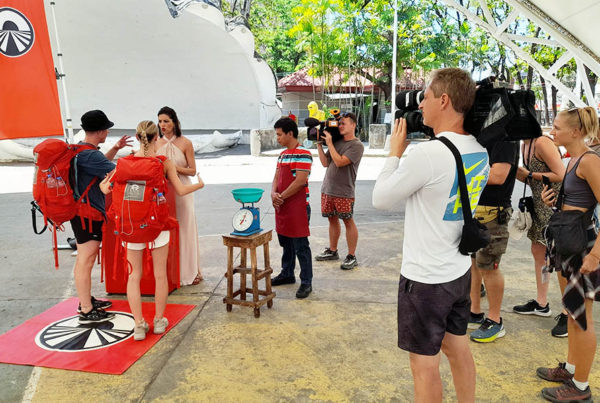Espino cites Capitol’s Kalinisan Karaban
LINGAYEN—The “Kalinisan Karaban” launched by the provincial government early this year is proving to be a boon to efforts to mitigate impact of climate change by collecting plastic wastes which are non-biodegradable and considered a bane to the ozone layer when burned and to sea mammals when they ingest these while prowling the oceans.
Gov. Amado Espino III cited the program in his State of the Province Address (SOPA) on Thursday before the Sangguniang Panlalawigan (SP) in a special session witnessed by thousands in front of the provincial capitol here.
Led by the General Service Office (GSO), the program has already collected 14.2 tons of plastic wastes from the people in 103 barangays and public schools that it has so far visited, the governor said.
The program allows one kilo of plastic wastes to be exchanged with either grocery goods, school supplies and cellphone loads and even cellphones for bigger volume of plastic wastes.
Kalinisan Karaban is the first of its kind ever throughout the country, the program is in support of Republic Act No. 9003 or the Ecological Solid Waste Management Act of 2002 which aims to protect the environment and slow down climate change.
The collected plastic wastes, he said, are converted into bricks that public schools can use for their pathways, dividers or for anything where these can be useful.
Kalinisan Karaban pilot areas are in Tayug, Bugallon, San Carlos City and Bautista, where plastic redemption centers are located.
The “Kalinisan Karaban” complements the weekly coastal clean-up drive being undertaken by provincial employees every Friday to help protect the Lingayen Beach behind the provincial capitol.
In the fight against climate change, the provincial government, he said, has launched the production and distribution of fruits and medicinal seedlings, including mangroves.
The provincial government has produced 824,484 seedlings through existing provincial tree nurseries and spent P6.7 million in reforestation projects on balding mountains from 2016 to 2018.
In addition, the Bolinao Provincial Mangrove Nursery produced and distributed 207,012 mangrove seedlings under its Coastal Resource Management Program to towns along the coastal areas. (Leonardo Micua)
Share your Comments or Reactions
Powered by Facebook Comments









